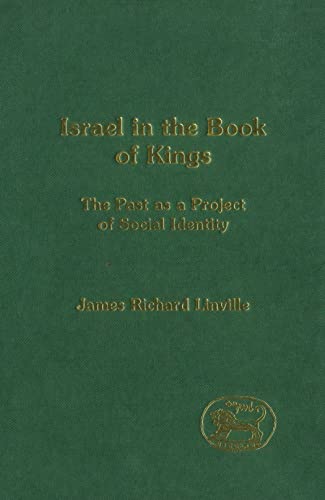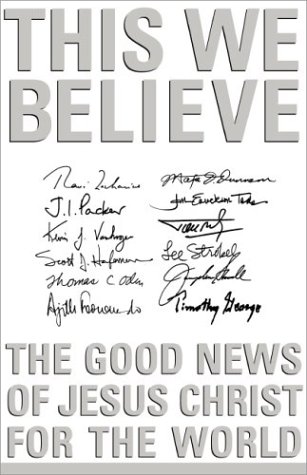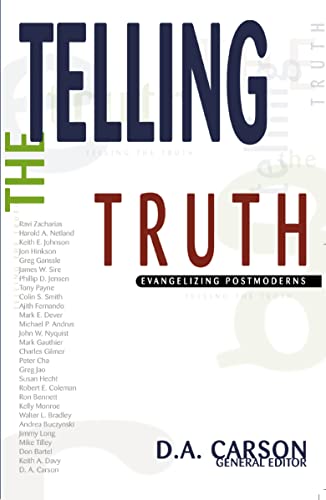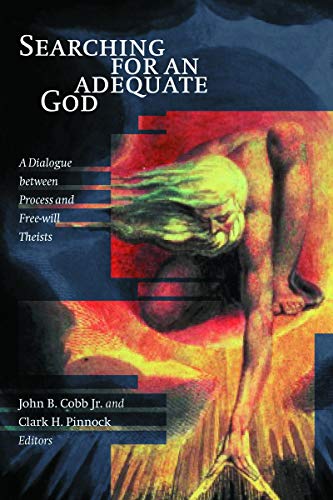Volume 26 - Issue 3
Measuring Life With Coffee Spoons
By R.V.G. TaskerThe poverty of evangelicalism is the poverty of ambition. If T.S. Eliot captured the mediocrity of modern life in the striking line from The Love Song of J. Alfred Prufrock, ‘I have measured out my life with coffee spoons’, then the sentiment would seem to apply equally to evangelicalism in the West: materialistic, narcissistic, and spiritually bankrupt.
Time and again over the last eighteen months I have been drawn to the book of Amos in the OT. One of my heroes, Klaas Schilder, a man who led the underground Dutch church resistance to Nazism during the Occupation, read and reread this book during his long and often trying ministry. Its significance for him lay in part in the fact that it addressed ancient Israel at a point in her history where she was outwardly prosperous and comfortable, in a position of relative strength both economically and politically; and yet she was sick at heart and, despite outward appearances, under the judgement of God.
This contrast applies to evangelicalism in the West at this present time. Few of us who are evangelicals do not enjoy some of the benefits which come from living in a prosperous, post-industrial society. Compared to the life my grandparents lived, mine is one of relative ease, and I suspect that it is the same for many who read this page. That is not to say that such prosperity is in itself a bad thing. Poverty is an evil, and should not be wished on anyone, ourselves included. But prosperity in all spheres brings with it temptations which must be avoided at all costs and yet which are often so subtle and imperceptible that we can fall into them without even realising it. Greed, having been promoted to the level of a cardinal virtue by society at large, can be very difficult to discern in ourselves, and can affect us wherever we happen to be located on the economic food chain. It must also be remembered that greed and materialism are not necessarily functions of disposable incomes: one can be dirt poor and unbelievably greedy; one can be as rich as Croesus and remarkably generous and liberal with money and possessions.
What is so concerning about living in a society where power and influence are increasingly construed in monetary terms is that Christians too become affected by the value scheme of the world in which they live and have their own agendas and ambitions set by the surrounding culture. It would take a whole book to catalogue the many examples of this, so I wish to focus here on just a few points which concern me as I look at the evangelical world of today.
First, I am worried about the ambitions of young Christians. The highest thing to which a believer can be called is to be a preacher of the gospel. There is no greater privilege given to sinful human beings than the responsibility of declaring God’s word of judgement and grace to a dying world. Therefore, it should surely be of concern to us all that the brightest and the best of the young are not, on the whole, giving serious consideration to the preaching ministry. Time and again at conferences, I find that few of the top theological students have ambitions to enter the pulpit or go out on the mission field. Many want lucrative jobs; some wish to teach at seminaries or universities; few consider the gospel ministry. This is a complete reversal of trends earlier in the church’s history, where the brightest and best were often found in pulpits, not in lecture theatres or the offices of law firms. Whatever the historical reasons for this change, it undoubtedly indicates a radical shift in priorities, where gospel ministry is no longer considered to be the supreme calling of a Christian. Now, do not misunderstand me. I am not saying that all bright evangelicals should be going in for the ministry or on to the mission field—only God’s call can make a minister or a missionary; but that many are not even considering this avenue of service is a damning indictment on an evangelical culture where the ministry has clearly ceased to be the respected and sacred calling that it once was. Those Christians have a woeful lack of ambition who put more stock in earning enough to drive a brand new Jag than in developing a church culture where the brightest and best are encouraged to consider whether they are called to preach the word of life.
Let’s face it—a generation of leaders and preachers is passing away before our eyes with no obvious successors. Of course, it is good to see that Dick Lucas, Jim Packer, Sinclair Ferguson, Geoff Thomas, Don Carson and others are still writing and speaking at conferences. But the youngest of these guys is in his fifties, the oldest in his seventies. In thirty years time they will be gone and who will there be to replace them? The preoccupation of so many of my generation with academic status, scholarly credibility, and social respectability does not inspire confidence that uncompromising gospel leadership will emerge from among the current generation of evangelical thinkers. Whatever some might say, the key battles for Christ’s kingdom will not be fought from the Senior Common Rooms of Oxford but from the pulpits in Britain’s churches, some big, some small, some famous, some unknown. That’s where the fight will be hardest; and that’s where we need our toughest, our brightest, and our godliest.
I used to think that the church did not need great preachers and leaders to survive, and indeed it doesn’t. The problem today is that we don’t even seem to have too many good leaders and preachers coming through to replace the older generation. As Sinclair Ferguson wrote, ‘the church can survive without great preachers; but she can’t survive without good preachers’. The same applies to leaders. We need to be praying for such to be raised up: preachers who will preach the gospel in a straightforward, no-nonsense manner to the current generation; and leaders with the understanding of the times in which we live such that they can call the church back to its biblical roots and away from the soul-numbing materialism and crass entertainment-centred narcissism of so much that passes for church life today. That is ambition; anything less is selling the church short.
Further, in thirty years time, a large portion of our current church membership will be gone—and will there be anyone to replace them? We stand on the brink of a major crisis: very soon the churches in Britain will be dramatically smaller than they are now. Every year I pass a new night club that used to be a church building; a recent report from the Church of Scotland recommends the closure of 500 churches; and I wonder how long the nation will tolerate granting privileged status to an Anglican Church which is, for all intents and purposes, an irrelevance to most of the population. It ultimately does not matter how many theological colleges we have or how many theological textbooks are written by evangelicals—if the church has few members and even fewer leaders, these ‘achievements’ don’t add up to a hill of beans. Indeed, ambitions to conquer the academy seem rather misplaced when the true depths of this crisis are seen for what they are. Only those scholars who talk only to other Christians can kid themselves that evangelicalism is on the verge of some kind of major triumph. Sure, it is now a more powerful voice in certain denominations than has been the case; but this is not so much the result of a revival of fortunes as of the facts that the term ‘evangelical’ has become almost meaningless and that evangelical church membership has declined at a slower rate than its liberal counterpart.
From the above, it should be clear that I dissent from much of the current triumphalism that some evangelical leaders have made their trademark. I worry that the glossy packaging of modern evangelicalism in the West has not halted the slide in church membership; I am concerned that so many of the churches that do claim growth have not achieved this growth by preaching the gospel but by offering what are essentially the same commodities of entertainment and self-indulgence that the world peddles, albeit dressed up in spiritual language; and I am profoundly disturbed by the emphases in the books which clearly sell like hot cakes in high street Christian bookshops—plenty on dieting, sex, and self-fulfilment, but very little on sin, salvation and godliness. Christianity, it would seem, is all about repairing a marred self-image, not a marred divine image. As a result, I also dissent from much of the analysis of our current predicament. Church numbers are not ultimately declining because we are failing to grasp modern media and methods—though this may be a very small factor. Leaders are not being replaced and church numbers are declining because our materialism and our obsession with self have called forth God’s hand of judgement against us. Only repentance for our worldliness, for our crass lack of spiritual ambition, will at the end of the day call a halt to this seemingly inexorable decline.
Perhaps some will laugh at this, but make no mistake: God is judging the poverty of ambition in our churches and in our own hearts, just as he judged ancient Israel in the time of Amos. To set materialism, academic acceptance, and entertainment at the centre of our agendas betrays a pitifully small vision of what life is all about. To cure this, we need to understand real ambition; and to do this we can do little better than recall the words of the first question of the Westminster Shorter Catechism: ‘What is the chief end of man? Man’s chief end is to glorify God and enjoy him forever.’ If you read this sentence and it leaves you cold, then just stop and think what it means. God, the Creator of heaven and earth, the one who was there in the Garden with Adam, the one who flooded the earth, the one who called Abraham, the one who loved Isaac, the one who cared for Jacob, the one who brought his people out of Egypt, the one who raised up David, the one who manifested himself in Jesus Christ, the one who rides on the wings of the storm, in whose presence no-one can stand, and yet who numbers the hairs of your head and loves you as his precious child—this God should be your ambition, and to serve him, to enjoy him, and to do so forever, should be your highest goal. Surely Jaguars, PhDs, and telephone number salaries cannot be compared to knowing, glorifying, and enjoying this God. And surely the first question we need to ask ourselves is where we can serve him and in what capacity. Maybe it will mean lack of worldly credibility, lack of respect from others—even Christians!—but this will all mean nothing compared to that immense privilege of ‘glorifying God and enjoying him forever’.
The next thirty years are going to be decisive for the church. Every one of us needs to think and pray about our particular role in the coming struggles. We need to put to death in ourselves those sins which sap our spiritual strength; and we need to commit ourselves to lives of prayer, worship, and self-denial in order that we might be able to stand when the going gets tough. We also need to pray that the Lord will remove his judgement from a church marked by lack of ambition and obsession with self-fulfilment, grant us as a body true repentance for these things, and raise up among us leaders and preachers with the courage and discernment to speak God’s word in an uncompromising manner to the world around us. Let us not measure out our lives with coffee spoons, but with the grace of God given to us in Christ.
PROFESSOR R.V.G. TASKER
O.R. Barclay
Professor R.V.G. Tasker (1895–1976) became well known as Professor of New Testament Exegesis in the University of London. This post was held at King’s College London, which then had one of the largest theology departments in Britain. Having been moderately liberal he emerged as a conservative evangelical in the late 1940s. This followed a student mission run by the CU in 1947 at which he attended a lecture by Dr Martyn Lloyd-Jones. This had a revolutionary effect on him. Three years later he took the chair for a similar CU mission meeting and introduced the same speaker with the words: ‘I don’t know who else heard Dr Lloyd-Jones speaking in this hall three years ago, but I know one man whose whole life was revolutionised by that address. That was your chairman tonight.’
He revised his book The Old Testament in the New for a new edition, as he adopted a confident belief in the authority of the Bible, saying that you could not excise the Apostles’ teaching on their own and the Old Testament’s authority without losing the whole framework of biblical doctrine. He then started publishing chiefly with the small, but growing IVP. His major contribution was in acting as Editor of The Tyndale New Testament Commentaries, contributing the first volume himself on the Epistle of James and later the volume on John’s Gospel. This gave the series a respect that it might not otherwise have received, when there was only one other Lecturer in a University Theology Department willing to associate himself with IVF, and no other up to date evangelical commentary series.
He faced considerable opposition, some of his colleagues hardly speaking to him, and one of them hinting darkly that he should remember that one of his predecessors had been deprived of his Chair for ‘unorthodoxy’.
He was a great encouragement to evangelical theology students in particular at a time when they were often treated with scorn by an overwhelmingly liberal establishment. It helped them to believe that, even though they did not have answers to all the problems, it was not intellectual suicide, as they were sometimes told, to hold fast to an evangelical position. He was also a very gracious and humble man. He supported IVF and the CU at Kings in particular, turning up as merely a listener at freshers’ meetings, because he said ‘these people need encouragement’.
R.V.G. Tasker
Professor of New Testament Exegesis, University of London






